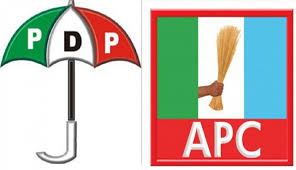THE last weeks of April brought with them series of developments that may, in retrospect, be seen as a turning point in history. Foremost among these was the sweeping realignment that saw the entire political structure of the Peoples Democratic Party (PDP), led by Governor Sheriff Oborevwori, cross over to the All Progressives Congress (APC) in a bold and strategic move that reverberated across the country, marking a significant departure from the status quo.
At the defection ceremony in Asaba, Governor Oborevwori described the move as a historic movement borne out of the love for Deltans and the entire South-south geopolitical zone, stressing that the decision was reached after extensive consultations across all levels—ward, local government, state, senatorial and national. He also justified the movement as a reciprocation of President Bola Tinubu’s goodwill to the state, evidenced in the myriad of programmes and projects enjoyed by the state in the last months.
For nearly a decade, Delta operated outside the sphere of influence of the ruling party at the centre. Being governed by the opposition PDP, it often found itself isolated from the full benefits of certain federal policies and programmes. Now, with the Governor and the entire political class in the state joining the APC, the pathway for greater socio-economic integration has been flung open. The reconfiguration, if properly managed, positions Delta to partake more directly in the opportunities generated by the federal administration.
Another clear benefit of this realignment is the emerging political harmony. With a majority of key stakeholders now under the same political family, there is hope for increased consensus and a reduction in the frictions that often arise from partisan division. This unity can lay the groundwork for more coordinated development initiatives and a renewed focus on the state’s priorities.
However, political realignment alone is not a silver bullet. The success of this shift depends on how well both old and new members of the APC can blend their strengths and differences into a cohesive force. The future of the state’s development hinges on cooperation, inclusion, and a willingness to learn from the mistakes of the past. It is here that leadership will be tested—not only by Governor Oborevwori but also by the party’s leadership across the board.
We commend the Governor for what appears to be a calculated decision aimed at putting Delta’s interests first. His commitment to inclusiveness is noted, and we urge him to make it a guiding principle going forward. Political migration, after all, must be more than optics; it should deliver tangible benefits to the people.
It is also imperative for the APC-led federal government to recognise and reward this realignment. Delta’s full integration into the national framework should be visible through increased federal presence—be it in infrastructure, jobs, or social services. Only then can this political shift be deemed meaningful in the eyes of ordinary Deltans.
Finally, while political unions can generate tension, what matters most is how the actors manage the dynamics. The onus is on both newcomers and existing APC members to forge a common identity rooted in shared purpose and respect. The world is watching, and so are Deltans hopeful that this shift will bring real dividends as promised.
We applaud the courage of the Governor and the wisdom of his advisers, just as we salute the APC leadership for opening its doors to this historic alignment. The challenge now is to ensure that this new direction delivers results worthy of the hope it inspires.


